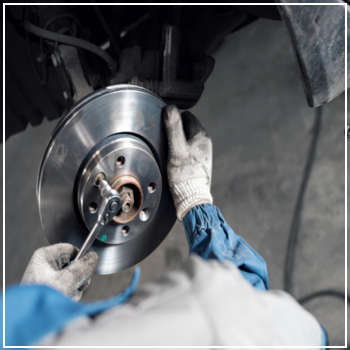 If you're hearing a whistling or screeching noise when you hit the brakes, it's a clear signal that your brake pads are worn down and need immediate attention. Ignoring this can put your safety—and the safety of others—at risk. Over time, excessive wear can also damage other components like the calipers, rotors, and even the brake lines. So, what should you do if you start noticing these sounds?
If you're hearing a whistling or screeching noise when you hit the brakes, it's a clear signal that your brake pads are worn down and need immediate attention. Ignoring this can put your safety—and the safety of others—at risk. Over time, excessive wear can also damage other components like the calipers, rotors, and even the brake lines. So, what should you do if you start noticing these sounds?
What Causes Brake Wear?
Several factors can speed up the wear on your braking system:
- Driving Style: Aggressive driving—like sudden stops or heavy acceleration—puts more pressure on your brakes. Smooth, controlled driving helps extend their life.
- City vs. Country Driving: Stop-and-go traffic in cities causes more frequent braking than open roads. If you live in hilly areas, you’ll likely use your brakes more often too.
- Brake Pad Material: Harder compounds, common in performance cars, last longer but require heat to work effectively. Softer materials are better for city driving but wear out faster.
- Heat Buildup: Excessive heat from heavy braking can melt the pad material onto the rotor, reducing braking efficiency and potentially causing permanent damage.
- Material Quality: High-end materials like carbon-ceramic brakes offer much longer durability compared to standard steel or cast iron rotors.
How Often Should You Replace Your Brakes?
Unlike oil changes or tire rotations, there’s no set schedule for brake maintenance. However, it’s wise to have them inspected during routine services—like when you get your oil changed or tires rotated, typically every six months.
On average, most drivers replace their brakes every 50,000 miles. But this number can vary widely. For example, city drivers might need replacements as early as 25,000 miles, while those who drive on highways or rural roads may go up to 70,000 miles before needing new pads.
Signs That Your Brakes Need Attention
Here are some key indicators that it’s time for a check-up:
- Squealing or Squeaking: This is often caused by the metal wear indicator on the brake pad scraping against the rotor. If ignored, it can lead to more serious issues like rotor damage or a pulsating brake pedal.
- Vibrations When Braking: A shaky steering wheel or a bumpy feel underfoot usually means your rotors are warped. They may need resurfacing or replacement.
- Grinding Noises: If you hear a grinding sound, it’s a sign that your brake pads are completely worn down and are now rubbing against the rotor directly.
- Brake Warning Light: If the light stays on longer than usual after starting your car, it could mean low brake fluid, a leak, or a faulty master cylinder.
If you’re experiencing any of these symptoms, don’t wait—it’s important to get your brakes checked as soon as possible. At DaSilva’s Auto Body, we offer reliable brake inspections, repairs, and fluid flushes at competitive rates. Don’t take chances with your safety—schedule an appointment today at our Naugatuck location and keep your vehicle running smoothly and safely.
Fluorinated Solvent,Propyl Propionate,Ethyl Propionate,Solvent Additives
Suzhou Cheerchem Advanced Material Co., Ltd. , https://www.szcheerchem.com